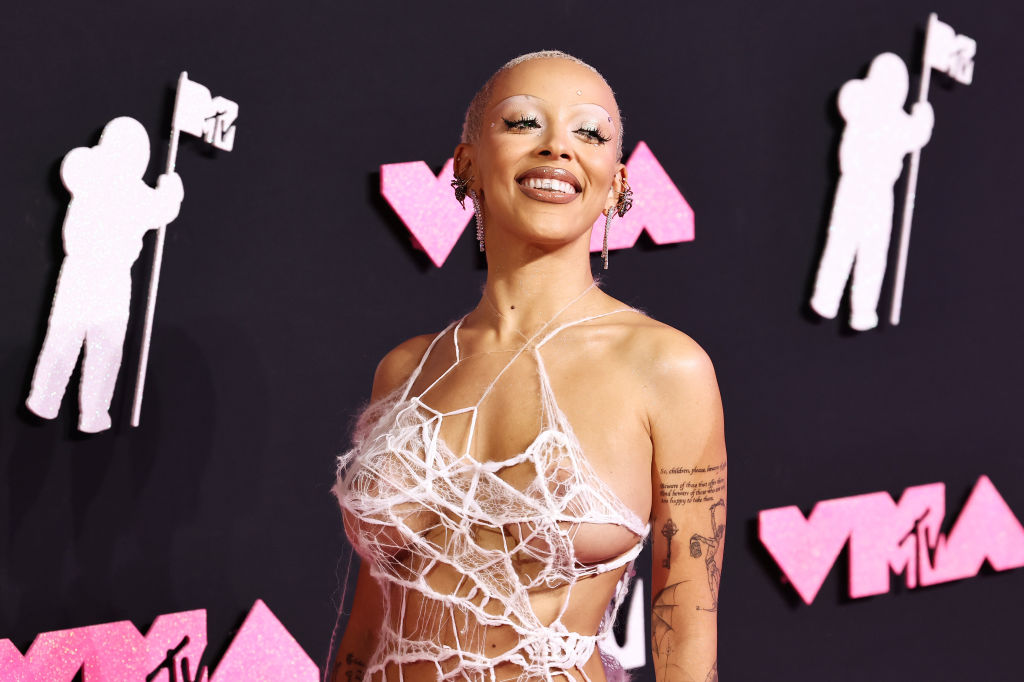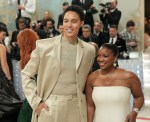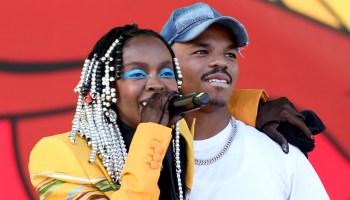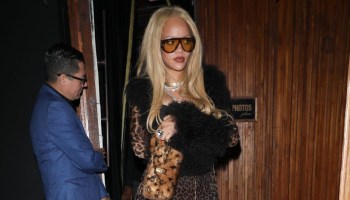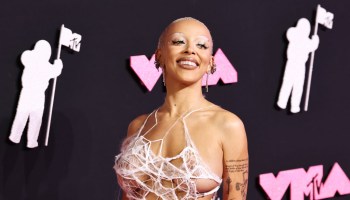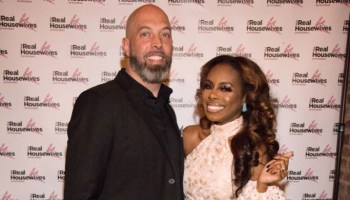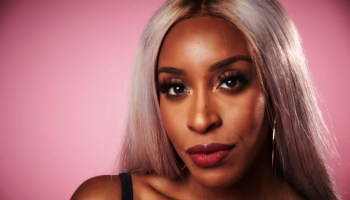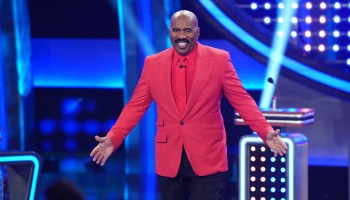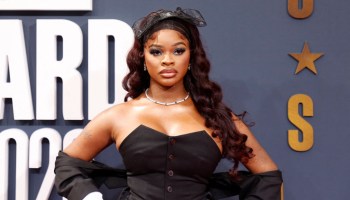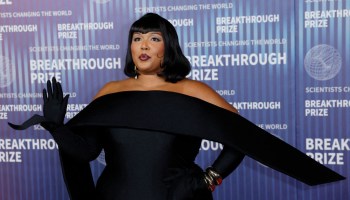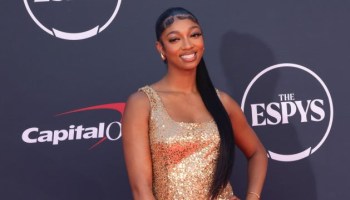The very first time I saw Jerod Haynes, I knew he would be a star.
Per a friend’s recommendation, we met back in late 2013 when Jerod came in to audition for my MFA thesis film “Blame.” The minute he read those lines, it was clear he was meant to play the role of this young father at a crossroads: Either turn his son into the police for raping their neighbor or delete the only evidence of the assault on the teen’s cell phone.
Despite the tiny budget for our 6-day shoot, Jerod never treated it like an amateur student film. Like a true professional, he came to set ready and delivered a beautiful performance filled with complexity, empathy and rawness. Everyday, I looked into that monitor and was blown away in awe. And having watched his work over the years, whether it’s on stage or on-screen, Jerod is truly a force.
Now five-plus-years later, the Chicago native is starring in his first TV leading role in NBC’s “The Village.” On the drama, he plays Ben, a New York City police officer living in his parent’s Brooklyn apartment complex where his neighbors are more like his family. The more obstacles they all encounter in life, the more they grow together. For Ben, he is also juggling a lot—the death of his son, his mother’s battle with pancreatic cancer and falling in love with Ava, an Iranian immigrant who ICE wants to deport. That, and Ben is helping raise her son Sami.
No doubt, the meatiness of a role like this is exactly what Jerod was made for.
HelloBeautiful recently sat down with the rising star to talk about NBC’s “The Village,” being an African-American man playing a police officer and how therapy has helped him become a better actor and human being.
HelloBeautiful: You were an athlete and then you became an actor. How did that happen?
Jerod Haynes: I played basketball and even left college early to pursue it professionally, but my agent stopped answering my phone calls. [Laughs] So that dream never happened and I found myself stuck on my sister’s couch depressed. One day I Googled “depression” and it said something about acting classes, so I approached the Acting Studio Chicago. But I couldn’t afford the classes, so they worked out a barter system. I would take out the trash and do other things around the studio to get free classes.
Soon, I realized that I really liked acting, so I took even more classes and auditioned for some plays, got guidance from people in the business and kept going with it. I started to see that as the window for basketball closed, another one opened.
HB: OK, so I’ve had the privilege of directing you before, and listen…there were so many moments on set when I was looking into the monitor and was like “Damn, he’s really good.” At what point, did you realize that you were good at this?
JH: Kellee, I’m still trying to figure that out! [Laughs] Honestly, sometimes I wonder if they are like, “What is he doing here? I want to say that I’m good, but that’s all subjective. But here’s what I do know. I enjoy this and I am just seeking to get better at it.
HB: You have the ability to dig so deep within yourself with your role as Ben and in any supporting role you’ve had, like when you were on “Chicago Med” and your wife died and obviously “Blame.” You like to cry on-screen. [Laughs]
JH: Ha! You know, this work teaches you who you really are. And learning who you are is the toughest task you can be given, because you see the good and the bad. You see your flaws up close and you really begin to understand what your triggers are, especially when the scripts require a high level of emotion and thoughtfulness.
I started therapy and began learning why certain things affected me and what tools I need to have to work on them. Listen. Therapy works. Also, being able to articulate what and why something affects me in a scene has helped as an actor and as a man. I can read a scene and identify quicker with it and what it requires emotionally.
HB: It’s so rare to hear a Black man speak so openly and positively about how therapy has improved their lives. Thank you for this, we need more to speak up.
JH: Well, I wasn’t always that way, I won’t lie. But I got to a place where I kept hitting a ceiling and finally had to ask myself what was the worse thing that could happen by going to therapy?
HB: Right, like the worse is that you get better?
JH: Exactly. And like I said, it works.
HB: Shifting gears to “The Village,” what drew you to this role?
JH: I remember reading the script and feeling like there was so much humanity in it. And in these times, we are seeing a lot of isolation and silence and people holding on to grudges. Yet, here is a story about this group of neighbors who try to understand each other and be there for one another.
We all have a commonality of pain and that brings us together. You’re wounded, I’m wounded, so let me help you heal and vice versa.And these neighbors need each other’s help and can’t do it alone. Given how divided this country is right now, I was drawn to this story. “The Village” is the show we need now more than ever.
